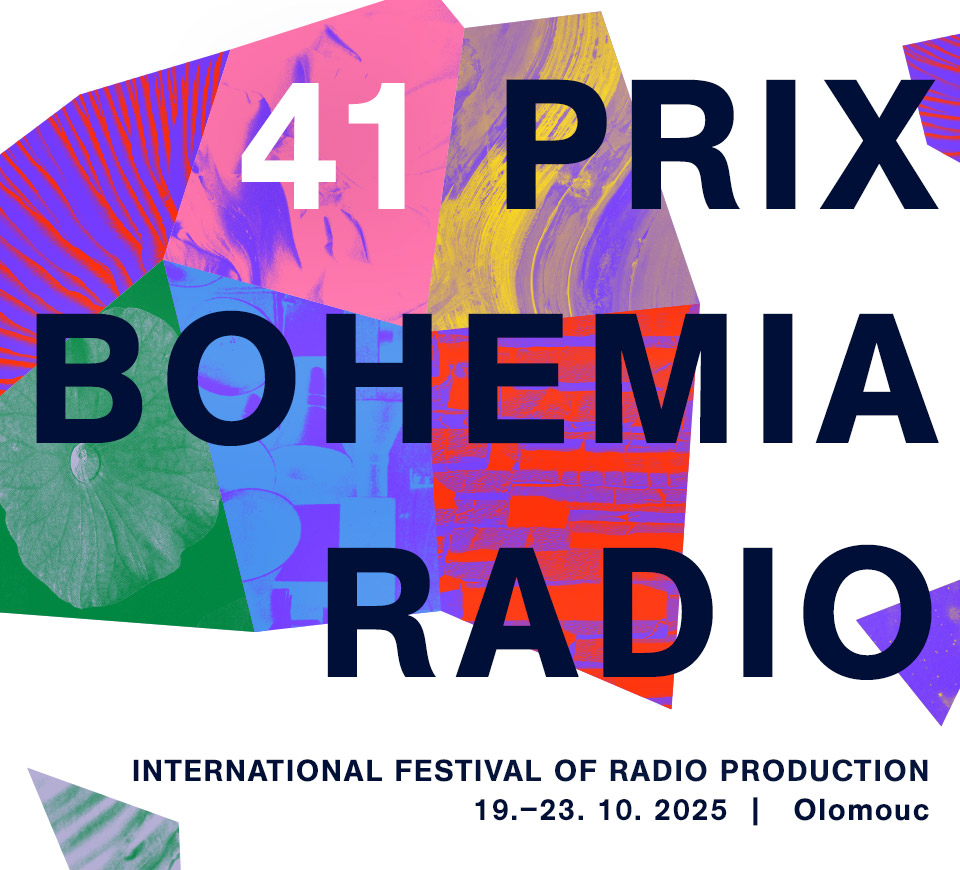The block of news reports led listeners into the dark corners of jail and a war zone. The role of the reporter was also discussed
The second day of Prix Bohemia Radio festival revolved around news reports. Tuesday's section offered both domestic and international entries for listening to. The authors were interested in social, ecological and also political topics.
Following the word of introduction by the guide of the news report block Michael Rozsypal of Czech Radio Plus, the morning kicked off in the festival listening room with the Polish report Victims, revealing the cruel reality of the world of loans.
Much like on the first day of listening, we encountered the problem of the lack of people's literacy as regards fundamental existential issues. The report by Polish author Adam Bogoryja-Zakrzewski is a demonstration of how far the case of a person in an extreme situation can go when they reach for a seemingly simple solution in the form of a loan.
Following up on the first news report entry was another authentic testimony, this time from a women's prison in Světlá nad Sázavou. In her report Jolana is Freed from Prison, author Veronika Hlaváčová meets with the convicted main character and captures the moments of handing over keys, packing things and saying goodbye to the other inmates.
"The feeling I got from Jolana is that she does have some kind of future out of custody," says Hlaváčová, describing her impressions concerning Jolana, who was convicted for theft. During the discussion the author mentioned that she met Jolana just two hours before the start of the interview.
"It is very important for the work of a reporter to be empathetic," noted one of the jurors, Petr Vavrouška. He also mentioned the difficulty of establishing a relationship between the reporter and interviewee during a short space of time.
The approach of a reporter and their ability to empathise with the interviewee was a highly discussed topic in general. Some of the jurors said they appreciate it when a reporter does not interrupt the protagonist's speech and does not confront them with their own opinions.
This was the case for example in Jan Kaliba's report on the isolated American island of Tangier Island. In it, we encounter an authentic picture of the life of locals, who are in danger they could soon become victims of the consequences of climate change. "This report is about people who don't want to understand the situation they are in. They believe they will be saved by Trump or God, but this island's time is running short," was how juror Andrzej Brzoska commented on the entry.
As part of the morning block, reports were also heard outlining the issue of housing from the perspective of socially disadvantaged individuals or stories of models with disabilities. The topic of climate change turned up once again in the report Northern Sea Route through the Arctic by Christian Schwalb. The first part of the listening session concluded with a report from Chemnitz in Germany with the title Peace Festival in Chemnitz.
The second half of the day opened with a commemoration of World War II and the rescue of Jews in the Ukrainian work by Violetta Karlashchuk Righteous Among the Nations. The following report also came from Ukraine, specifically from the World Cultures Festival. Here critical opinions were heard about the choice of topic. Juror Vavrouška would have dealt with more serious topics in Ukraine, for example corruption.
In contrast, words of praise were earned by Slovak author Dáša Omastová. In her report Red Noses Bring Joy to Incurably Ill Kids at their Homes, she attempts to present a view of the work of clown doctors, who visit an incurably sick girl.
Paradoxically, the report Passengers Got Stuck in the Train for Hours evoked mirthful reactions among the audience. "It was an interesting situation. I was on the train on my way home and listening to music. After about fifteen or twenty minutes however the train stopped and I started wondering what was going on," said Klára Grusová describing how she ended up making the report.
In conclusion the audience heard a report by Lucie Výborná and Tomáš Černý from the Afghan base in Bagram and The Sunken City by Jacqueline Hene about the drowned city of Přísečnice on the Czech-German border.
Four Czech and eleven foreign reports competed in the news report category. The student jury was most taken with the Christian Schwalb's report entitled Northern Sea Route through the Arctic. We will find out the expert jury's verdict on the last day of the festival, which is Thursday.








